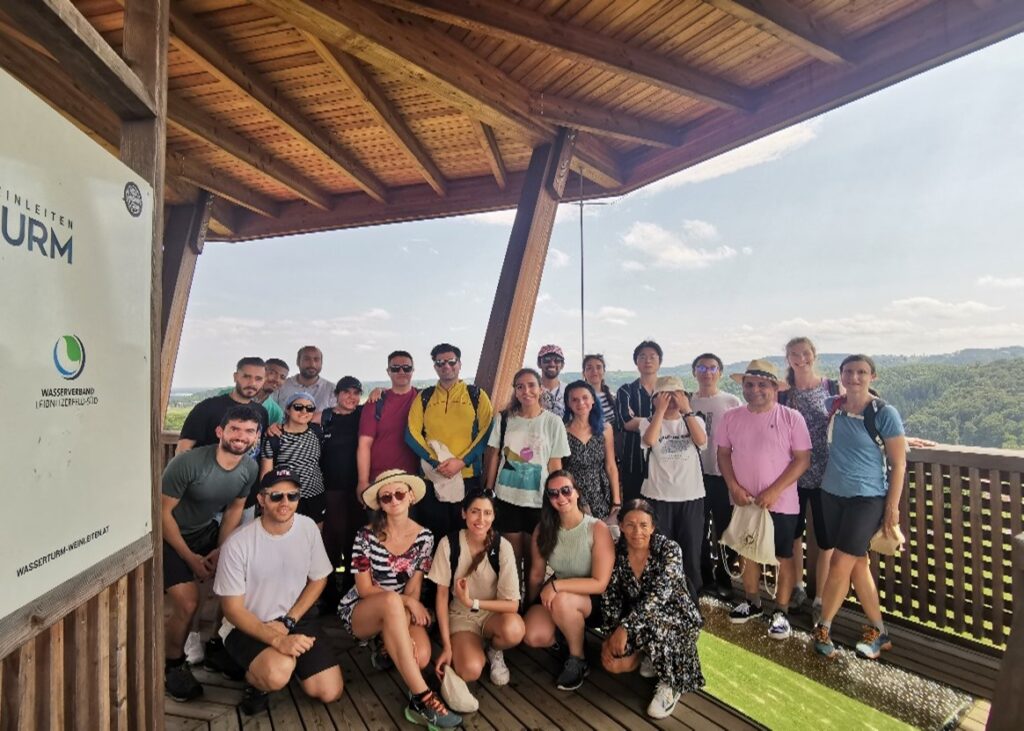By Sérgio Barbosa (University of Coimbra)
Earlier this year, Sérgio Barbosa from the University of Coimbra participated in a Short-Term Scientific Mission at the University of Graz’s Department of Sociology. The mission aimed to develop pedagogical tools to engage young people in marginalised mountain areas and to address digital technology imbalances between urban and rural regions. Sérgio’s research focused on fostering lifelong engagement with digital technologies through participatory pedagogy. He also presented his findings at a seminar hosted by the HFDT research network. This mission marked a significant step towards creating educational frameworks for digital participation among young people in rural areas.
In May 2024, I visited the Department of Sociology of the University of Graz for a Short-Term Scientific Mission (STSM) with MARGISTAR. The STSM had two major goals. First, it aimed to generate a discussion on the design of pedagogical tools to attract young people to participate in marginalised mountain areas. Additionally, the short-term mission reflected on pedagogical participatory methods to discuss the imbalances of digital technologies between urban and rural areas. Such imbalances have been highlighted by MARGISTAR before, focusing, for example, on the digital regeneration of rural towns in Ireland.
My Experience on the STSM
During the mission, I engaged in a participatory pedagogy approach to foster the development of knowledge and skills for young people through a process of co-creation and to provide an essential framework for their lifelong engagement with digital technologies. The STSM reflected on the importance of exploring pedagogical formats in school communities, building on my previous research to link marginalised mountain areas to young people.
The short mission investigated how to generate a long-term education strategy through the school communities to pedagogically approach young people. The community school format showcases pedagogical activities based on informal learning, which aims to stimulate young people to exchange communal and practical experiences in marginalised mountain areas. To contribute to this goal, I presented my research at the brown-bag seminar of the Human Factor in Digital Transformation (HFDT) network. HFDT was founded in 2017 as an intra-university project at the University of Graz and includes monthly meetings for internal professionals, research exchange within the context of interdisciplinary seminars, an open-access lecture series focusing on digital technologies, workshops, symposia, and talks with external guests. After presenting my research, HFTD invited me to join them for a writing retreat in the upper Styrian Mountains.

My participation in the HFTD brown-bag seminar contributed to a nascent interdisciplinary debate about pedagogy, digital technologies, and multi-disciplinary innovation to foster young people’s participation in the marginalised mountain areas. Further, the seminar included discussion about people from advanced age (65+) and digital tecchnologies, as pointed out by the finish scholar Laura Pajula, who was co-sharing the office space at the Department of Sociology. Pajula highlighted how crucial the inclusion of people from advanced age is in everyday social life through digital platforms.

Important Takeaways from the STSM
The research activities carried out at the University of Graz succeeded with two main achievements: an investigation into frameworks of post-digital futures through pedagogical processes and a pedagogical toolkit to implement within school communities in marginalised mountain areas.
Rather than providing a fully-fledged research agenda for young people and marginalised mountain areas, my STSM served as a kick-off to foster innovative school communities. In creating this pedagogical format, we will be able to better nurture young people and inform them about marginalised mountain areas challenges during turbulent political times, while implementing best digital practices to place them at the core of society. Such school community formats should focus on the everyday practices of young people, transforming them into agents of social intervention and raisers of critical consciousness regarding the context of marginalised mountain areas. This way, pluriverse pedagogy paths, referring to the multiple interconnected worlds or universes that exist alongside each other with their own distinct paradigms and ontologies (Escobar, 2020), can be co-designed by and for young people as active agents and promoters of social change.
To conclude, I envision how the young people participation challenges within marginalised mountainous areas can be solved through the pedagogical approach. Further research should rely on pedagogical formats to improve digital platforms in rural areas through co-design and co-teaching. Looking back, the research visit was inspiring, and the Department of Sociology supported me with office space and a vibrant and engaged Austrian research community. It was an immense pleasure to be linked to such a unique, cultural, and diverse academic community in Graz. I will keep working on this topic to adapt the pedagogical toolkit to be applied in the marginalised mountain areas of Portugal in the “Baldios” (common lands) and bring fresh ideas to my home institution, the University of Coimbra.
To read more about the work being done in Austria towards post-marginalised mountain futures, be sure to read MARGISTAR’s Austrian Country Focus.
New source: Escobar, A. (2020). Pluriversal Politics: The Real and the Possible. Duke University Press.


